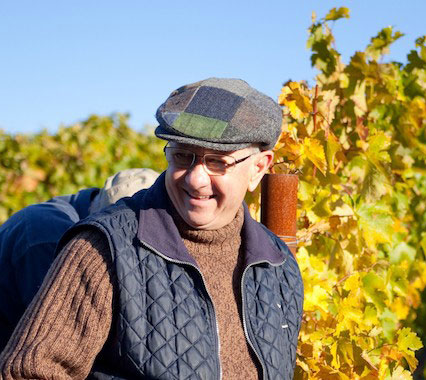We believe the key to a great wine is a great winemaker

Don Baker is an internationally known winemaker based in Napa Valley, California. Photo courtesy of Napa Valley Vintners.
Don Baker, Senior Winemaker
Don Baker brings a wide range of experience to his role as senior winemaker for Pillar Vineyards. Over the past three decades Don has done it all — cellar work, winemaking, winery design and construction oversight, marketing and international business relations. His extensive portfolio includes positions with Joseph Phelps, William Hill, Merryvale, and Kendall-Jackson’s Vina Calina venture in Chile.
He sums up his philosophy about making wine with the words “Let the fruit show the way.”
His expertise goes beyond the science of fermentation and related advances, such as micro-oxygenation. He’s a master at working with oak in all its forms, from barrels to in-tank staves. He has worked with oak grown in the many forests of France (such as Allier, Never and Vosges) Eastern Europe, and the many forests of the United States.
Don is a graduate of the famed University of California, Davis. He and his wife Lynne, a registered nurse, reside in Napa. Their five adult children are happily engaged in their own careers.
What Does a Winemaker Do?
A winemaker, also known as an enologist or a vinter, oversees the entire process of making a wine, which can include deciding what grapes to plant, when to harvest, and managing the crushing, fermentation, aging and bottling.
Viticulture
Winemaking is a complex art that uses both science and a winemaker’s personal experience in equal measures. It begins with a winemaker’s supervision of viticulturists, those who plant and grow the grapes. Decisions are made on where, when and what to plant, and managing the vines to fruition.
Harvesting
Once the grapes have begun to ripen, the winemaker then decides on when to harvest them, taking into consideration the grapes’ level of moisture, sweetness and acidity, as well as what the grapes will be used for. Grapes designated for one type of wine may be harvested early, while others are left to ripen on the vines for a longer time for another type.
Fermentation
Once vineyard workers have harvested the grapes, the winemaker supervises the crushing process, which again can depend on what the final product will be. For instance, crushed red grapes (the must) can either be left with their skins to produce reds, or more quickly separated from their skins to produce a rosé. The winemaker will add the yeast and sugar to the must to begin fermentation.
Bottling and Aging
After fermentation, the winemaker will decide whether and how long to age the wine, and how. Many wines are aged in traditional oak barrels, which impart certain desirable flavors in the wine. Still others are aged in stainless steel vats.
With so many variables in producing a wine, it’s easy to see why the role of the winemaker and his or her expertise is so valuable to a winery. At Pillar, we are proud of Don Baker and the role he plays in producing some of the world’s best wines.